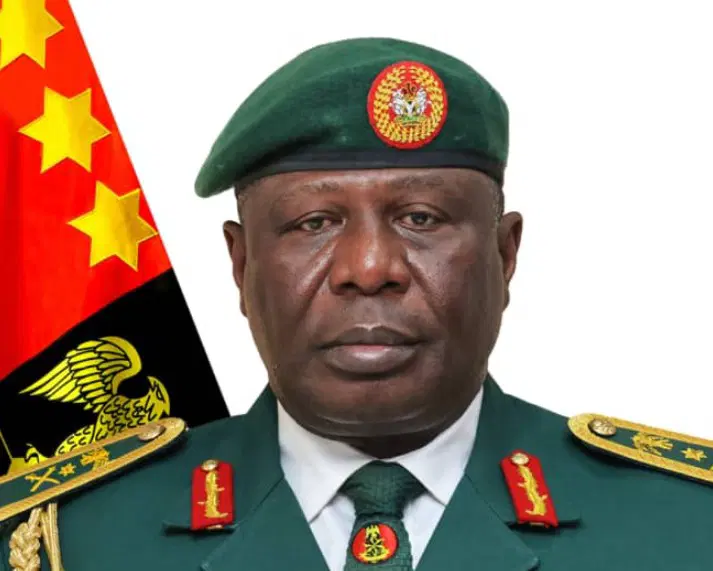By Sumaila Ogbaje
The Chief of Army Staff (COAS), Lt.-Gen. Olufemi Oluyede, has called for stronger collaboration between the Nigerian Army, non-governmental organisations (NGOs), and civil society organisations (CSOs) to address the nation’s complex security challenges.
Oluyede made the call at the opening of the 2025 Nigerian Army Civil–Military Affairs Training for NGOs and CSOs, on Wednesday in Abuja.
He was represented by Maj.-Gen. Sani Mohammed, Director, Test and Evaluation, Defence Research and Development Bureau.
The COAS said the evolving security threats confronting the nation required a whole-of-society approach built on mutual trust, understanding, and coordinated efforts among all stakeholders.
He said the training was designed to familiarise participants with the doctrines, operations, and activities of the Nigerian army, aimed at enhancing civil understanding and improving perception of military efforts across various theatres of operation.
“The dynamics of our security landscape have underscored the need for effective engagement between the military and the civil populace as joint stakeholders in peace, stability and national development.
“The protection of civilians remains central to our operations, and we are committed to ensuring a secure environment that allows NGOs and CSOs to deliver their services effectively,” he said.
Oluyede also commended the courage and resilience of troops engaged in counter-terrorism and other internal security operations, describing their sacrifices as vital to safeguarding Nigeria’s sovereignty.
He assured participants that the Nigerian Army would continue to protect law-abiding citizens while providing a safe and enabling environment for humanitarian and development actors.
“The task of safeguarding Nigeria’s peace and security is not the responsibility of the military alone.
“It is a shared national duty requiring synergy between the Armed Forces, government institutions and the civilian population,” he added.
The Chief of Civil–Military Affairs (Army), Maj.-Gen. Gold Chibuisi, says the Nigerian Army is deepening civil–military cooperation to strengthen peace, stability, and public confidence in ongoing security operations across the country.
Chibuisi described the forum as a strategic collaboration between the military and humanitarian actors.
He said the initiative underscores the army’s commitment to professionalism, transparency, and respect for human rights in all its engagements.
According to him, the training aims to bridge understanding between the military and civil society, acquaint participants with the dynamics of military operations, and promote effective coordination in humanitarian and community engagement efforts.
Chibuisi added that fostering mutual trust and dialogue was vital to addressing Nigeria’s complex security and socio-economic challenges.
He reaffirmed the service’s readiness to work closely with humanitarian and civil society groups to protect lives, restore peace, and sustain development in post-conflict communities.
The Chairman of the Steering Committee, Partnership Against Violent Extremism (PAVE) Network, Mr Jaiye Gaskiya, commended the Nigerian army for deepening engagement with non-governmental and civil society organisations.
Gaskiya described the initiative as “a bold and progressive step toward strengthening trust and accountability in national security operations.
He noted that the training provides an invaluable platform for both the military and civilian actors to exchange perspectives, harmonise approaches, and work collectively toward addressing the humanitarian consequences of armed conflict and insecurity across Nigeria.
According to him, meaningful collaboration with the military can help ensure that security operations are conducted in ways that safeguard human rights, uphold humanitarian principles, and promote community confidence in national institutions.
Also, Mr Kayode Bolaji, the Executive Director of Peace Building Development Consult, described the army’s civil–military coordination training as “a timely and forward-looking intervention.
Bolaji said the forum reflected army’s growing commitment to professionalism, human security, and respect for international humanitarian norms.
He acknowledged the complex environment in which both humanitarian and military actors operate, emphasising the need for structured engagement to reduce misunderstanding and enhance operational synergy.
Bolaji also underscored the importance of building institutional frameworks that can sustain civil–military dialogue beyond workshops and training sessions.
He called for the integration of humanitarian perspectives into military planning and for continuous capacity-building on both sides.
According to him, effective coordination is not just about coexistence, it is about cooperation that delivers results, protects civilians, and strengthens the foundation for peace and stability. (NAN)
